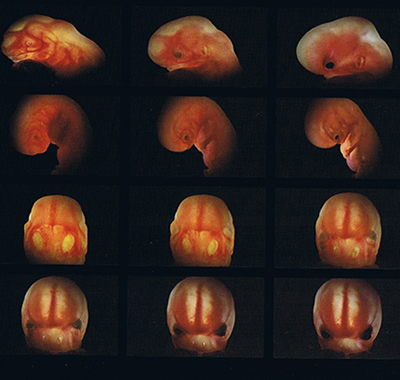What Is Placenta Accreta and How Will It Effect You?
 Most women don’t really think about the placenta while they are pregnant and many don’t realize just how big a role it plays in the development of your baby. So for the same reason many of you probably wouldn’t have an idea of what happens when the placenta does not function as it should.
During a normal pregnancy the placenta attaches to the uterine wall, however there is a condition which may occur if the placenta attaches itself too deeply into the wall of the uterus. This condition is known as placenta accreta, placenta increta, or placenta percreta – and this usually depends on how severe the and how deep the placenta attaches itself. This itself is not a very common issue in pregnancies though, and usually only occurs 1 in every 2,500 pregnancies.
What are the differences between Accreta, Increta and Percreta?
The difference between the three is determined by how bad the attachment to the uterine wall is.
Most women don’t really think about the placenta while they are pregnant and many don’t realize just how big a role it plays in the development of your baby. So for the same reason many of you probably wouldn’t have an idea of what happens when the placenta does not function as it should.
During a normal pregnancy the placenta attaches to the uterine wall, however there is a condition which may occur if the placenta attaches itself too deeply into the wall of the uterus. This condition is known as placenta accreta, placenta increta, or placenta percreta – and this usually depends on how severe the and how deep the placenta attaches itself. This itself is not a very common issue in pregnancies though, and usually only occurs 1 in every 2,500 pregnancies.
What are the differences between Accreta, Increta and Percreta?
The difference between the three is determined by how bad the attachment to the uterine wall is.
- Placenta Accreta occurs when the placenta attaches too deep in the uterine wall but it does not penetrate the uterine muscle. This is the most common accounting for approximately 75% of all cases.
- Placenta Increta occurs when the placenta attaches even deeper into the uterine wall and does penetrate into the uterine muscle. This accounts for approximately 15% of all cases.
- Placenta Percreta occurs when the placenta penetrates through the entire uterine wall and attaches to another organ such as the bladder. This is the least common of the three conditions accounting for approximately 5% of all cases.
What Causes Placenta Accreta?
Although no one actually knows what causes it – it can be related to both placenta previa and previous cesarean deliveries. Placenta accreta is present in 5% to 10% of women with placenta previa and the chances of having placenta accrete increases with each c-section – with multiple cesareans being present in over 60% of placenta accreta cases.Are There Risks For Your Baby?
In most cases premature delivery and subsequent complications are the primary concerns for your baby with bleeding during the third trimester being an indication that there is a possibility that placenta accreta exists. There are however risks which you may face if you have this complication. The main concern is hemorrhaging during manual attempts to detach the placenta. Severe hemorrhaging can be life threatening. Other concerns involve damage to the uterus or other organs during removal of the placenta. Hysterectomy is a common intervention, but as I am sure you know this results in the to conceive.What is the Best Treatment For Placenta Accreta?
Unfortunately there is nothing which can be done to prevent it and there is little that can be done for treatment once placenta accreta has been diagnosed. If you have been diagnosed with placenta accreta your healthcare provider will monitor your pregnancy with the intent of scheduling a delivery and using a surgery that may spare the uterus. You should discuss this option with your healthcare provider should you choose to have more children down the line. Unfortunately, placenta accreta may be severe enough that a hysterectomy may be needed. Again, it is important to discuss surgical options with your healthcare providerPlacenta Accreta


